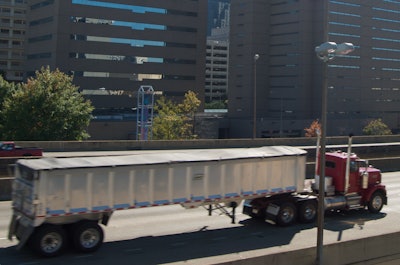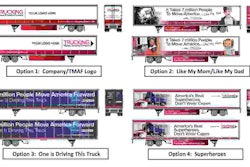
Here is the list and ATRI’s highlights from the survey:
(Industry Concern Index in parentheses)
- Hours-of-Service (100): This year marks the third year in a row that the HOS rules have been ranked as the top industry issue. The only other issue to generate a top ranking for three consecutive years was the Economy (2009 – 2011) during the Great Recession. Significant negative impacts on the industry from the 34-hour restart provisions first implemented in July 2013 have been documented by numerous sources. In its own research, ATRI found that 80 percent of motor carriers indicated a loss of productivity directly attributable to the now-suspended rules, and driver pay impacts were estimated to range from $1.6 billion to $3.9 billion annually. Although the restart provisions were suspended by Congress in December 2014, concern over their reinstatement continues pending FMCSA’s release of the results of its second field study.
- Compliance Safety Accountability (CSA) (91.6): Though FMCSA has been working to address some of the industry’s concerns with CSA, a number of critical challenges still persist. Research has documented that CSA’s safety measures, the seven Behavioral Analysis and Safety Improvement Categories under which carriers and drivers are scored, are not a good predictor of carrier crash risk. Additionally, there are disparities in how states collect and report safety performance data, and shippers are potentially misusing the data in the selection of carriers to haul freight. There is also a concern with the use of CSA scores as part of a Safety Fitness Determination proposed rulemaking. The combined impact of these concerns pushed CSA up one position to the second place ranking in this year’s survey.
- Driver Shortage (89.6): In a new report from the American Trucking Associations, the current driver shortage is now estimated to be 48,000, a number that is projected to increase to 175,000 by 2024. Despite a one-position fall to third place from last year, it is important to note that the Driver Shortage received the highest percentage (18%) of first place rankings of all the issues in the top 10.
- Driver Retention (71.1): Related to the driver shortage issue, but requiring different approaches is Driver Retention, which continues to be a top priority for motor carriers. Despite driver turnover falling in the first quarter of 2015, the industry still experiences turnover rates significantly higher than many other sectors of the U.S. workforce, creating additional costs for motor carriers in recruitment and training. Most importantly, carriers seek to focus driver retention on those drivers most qualified in terms of safety and productivity.
- Truck Parking (61.0): The growing scarcity of available truck parking creates a dangerous situation for truck drivers who are often forced to drive beyond allowable HOS rules or park in undesignated and, in many cases, unsafe locations. In response to a congressional requirement, the Federal Highway Administration recently released its Jason’s Law Truck Parking Survey Results and Comparative Analysis which confirmed that truck parking continues to be a major issue in the United States.
- Electronic Logging Device Mandate (55.4): In March of last year, FMCSA issued a Supplemental Notice of Proposed Rulemaking to address a number of concerns identified by industry stakeholders in the initial Electronic Logging Device proposed rule. However, the industry continues to await FMCSA’s issuance of the ELD Final Rule, currently expected at the end of October. Once the final rule is issued, the industry will better understand what will be needed for compliance and how it will impact individual fleet operations.
- Driver Health/Wellness (39.5): Reaching its highest ranking since first appearing on the Top Industry Issues in 2012, Driver Health and Wellness ranks 7th overall. Many in the industry recognize the critical connection between improved driver health and wellness and the industry’s ability to retain qualified drivers. In addition to obvious lifestyle benefits, an improvement in driver health may also have positive implications for industry safety as research has identified a positive correlation between driver health and driver safety.
- Economy (37.8): Once a longstanding top industry issue during the years of the Great Recession, the ranking for the state of the nation’s economy dropped to ninth place in last year’s 2014 survey. However, in 2015 it climbed one position to 8th overall. This may be driven, in part, by more recent concerns over softer freight demand and what that may mean for 2016, as well as concerns over the economies in Europe and Asia and export impacts from a strong U.S. dollar.
- Transportation/Infrastructure/Congestion/Funding (37.2): The United States’ 4.1 million miles of public roadways must be properly maintained and improved to allow the industry to efficiently deliver the nation’s goods. ATRI research documented trucking industry costs of $9.2 billion associated with interstate congestion in 2013. The negative impacts of congestion, failing infrastructure and the need for a long-term transportation funding solution all combined to keep this issue in the top ten in 2015.
- Driver distraction (32.9): First arriving on the Top Ten list in 2014, 2015 marks the second year that Driver Distraction has made the list. Increased concern about the rising use of technology in vehicles by all drivers will likely result in this issue continuing as a top concern in the coming years.










